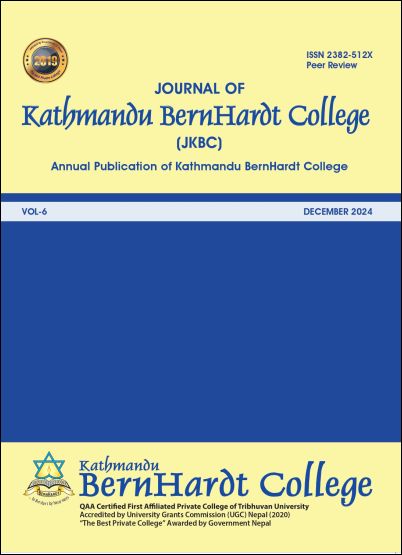Efficient Service Delivery Practice at Local Government Administration of Nepal
DOI:
https://doi.org/10.3126/jkbc.v6i1.72973Keywords:
Efficiency, Public administration, Local government, Common people, Social developmentAbstract
This paper investigates administrative service delivery practices in Nepal’s local government and the relationship between governance, service delivery, and citizens. And, it emphasizes collaboration, people-centric social development, and engagement high lighting the need for policy interventions. Public administration aims to achieve efficiency at local levels providing necessary services without discrimination based on affordability. It is a historical perspective expected to influence local people significantly. Using a qualitative approach, it reveals the satisfaction of local people with the efficiency of administration, the vision of leadership for efficient administration, and interpersonal communication adopted by leadership for addressing silo mental problems. However, gaps exist in knowledge and perceptions among people and societies. To achieve efficiency at all levels, it is necessary to provide necessary public goods and services without discrimination based on affordability. Performance should not only be a cost-benefit analysis but also provide value to citizens. In a scarcely available world, understanding efficiency’s historical perspectives and future role is crucial.




